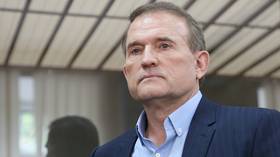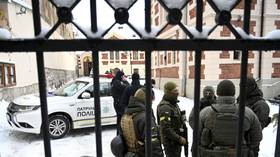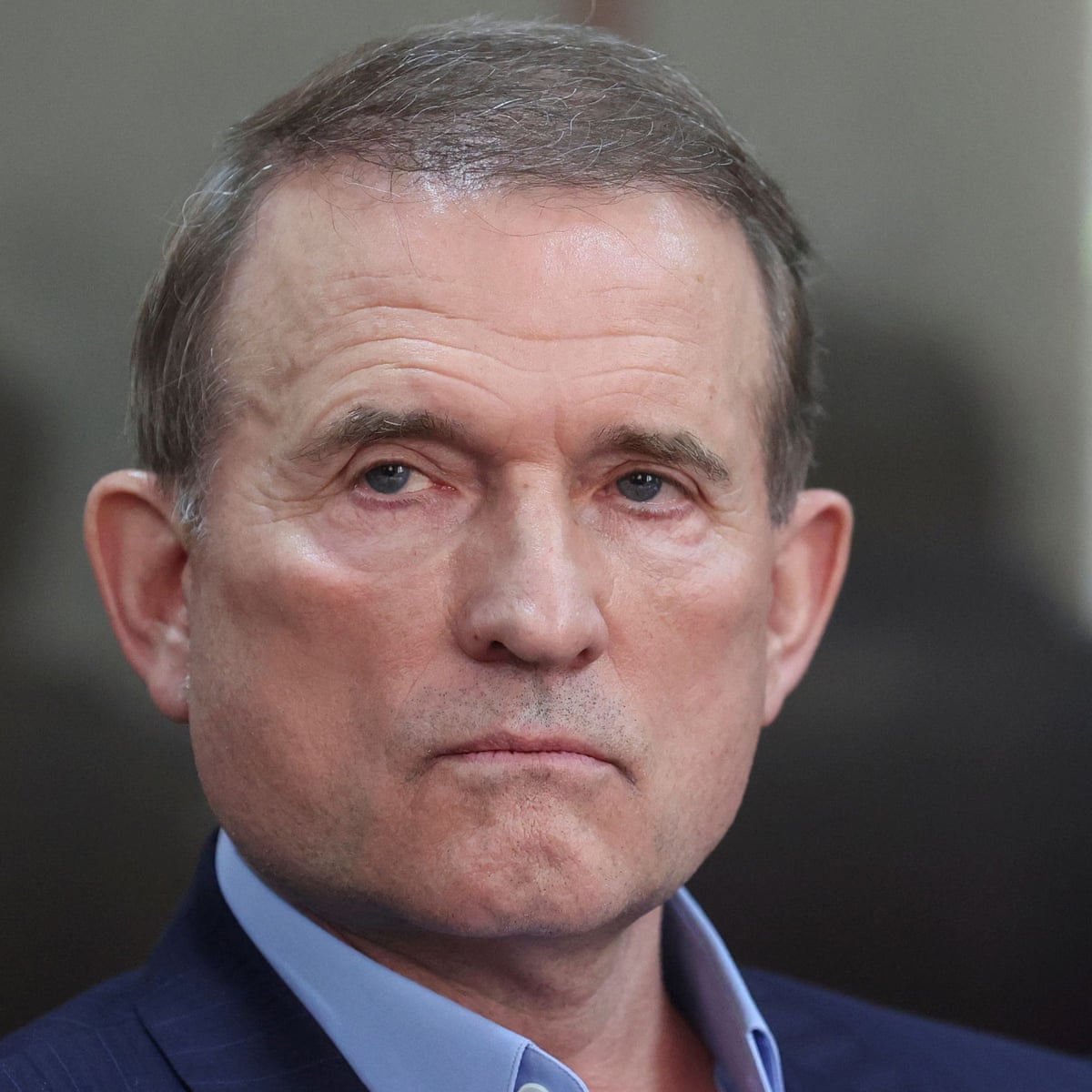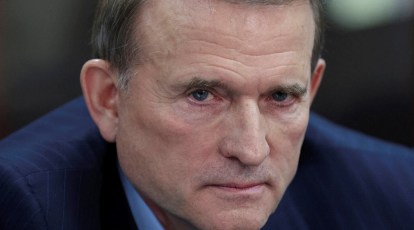3 Jan, 2024 17:24
Exiled opposition leader lists 'fatal' Zelensky mistakes

President Vladimir Zelensky has made three “fatal” mistakes that will likely cause his downfall, exiled Ukrainian opposition leader Viktor Medvedchuk has sugested. The former leader of the banned Opposition Platform – For Life party, accused Zelensky of filling the government with non-professionals, failing to reasonably assess resources at his disposal, and using Nazi ideology to mask his missteps.
In an opinion piece published on the Drugaya Ukraina (The Other Ukraine) movement’s website on Wednesday, Medvedchuk argued that it is becoming evident that Zelensky’s days as a politician are numbered.
The opposition leader – now in exile in Russia – accused Zelensky of mistaking politics for show business, and assuming the rules of the latter apply to the former. Before becoming president, Zelensky had been a a professional entertainer and comedian.
- This was Zelensky’s first mistake, which has “undermined the foundations of statehood,” Medvedchuk argued.
- The second was the president’s embrace of “Nazi ideology” in a bid to disguise his government’s own failures, the former MP continued.
- He alleged that it was the “Western puppet masters” that suggested the idea to Zelensky, who was seeking to create an image of an enemy.
Medvedchuk, concluded that the “day of reckoning is approaching” for Zelensky, with Ukrainian political forces already scrambling to disown the president.
- Last month, the opposition figure blamed Zelensky for weakening Kiev’s negotiating position in any future talks with Moscow.
- In 2021, Ukrainian prosecutors filed criminal charges of high treason against Medvedchuk over his alleged collaboration with Russia.
- advocated reconciliation with Moscow, arguing that confrontation would be disastrous to Ukraine.
- Authorities in Kiev also branded his party – the second largest in the country – illegal, along with a dozen other opposition groups.
In January 2023, Zelensky stripped Medvedchuk of his Ukrainian citizenship.
__________________________________________________________________
The Return of Medvedchuk
The man who failed to create “The Other Russia” in Ukraine now tries to establish “The Other Ukraine” in Russia
Introducing “The Other Ukraine”
As a first testing of the waters by a politician attempting a return to the public arena, Medvedchuk’s interview failed: Ukrainian media hardly noticed it, while Russian media responded with a severe backlash, aimed at his failure and loss of political influence in Ukraine.
Medvedchuk then decided to try something else. A known fan of history and symbolic gestures, he chose a special date (February 12, the eighth anniversary of the signing of the Minsk-2 peace accord, which was meant to ease the war in the Donbas) and a special venue (the state-owned STV channel of Belarus, a country that adopted deliberate blindness with regard to the annexation of Crimea and has been seeking to position itself as a mediator in Ukraine-Russia relations) to make his second big appearance.
Medvedchuk was introduced on the broadcast as a leader of the pro-Russian Opposition Platform—for Life party (banned in Ukraine), an association meant to underscore his political continuity and legitimacy among the pro-Russian audiences. The ex-MP announced his return to the big game and the creation of a new political project, “The Other Ukraine,” which, he said, would “demonopolize” President Zelensky’s right to represent Ukraine at the international level.
Medvedchuk claimed that some 9 to 12 million Ukrainians do not support Ukraine’s current course; that it was entirely logical to create a government in exile to represent their position; and that he should be treated as the official representative of this “alternative” Ukrainian voice.
This presentation was problematic for several reasons.
First, the name. “The Other Ukraine” recalls Eduard Limonov’s “The Other Russia,” a Nationalist Bolshevik anti-Putinist project. This echo of Limonov tarnishes what might otherwise be mistakenly viewed by some Russian elites as a legitimate project.
Second, most Ukrainians understand that today, they should be more united than ever. Medvedchuk’s attempt to divide Ukrainians into “us” and “them” while trying to mobilize Russia-oriented Ukrainians (who amount to only 3 percent of the Ukrainian population) went over like a lead balloon in Ukraine.
Comprising a hodgepodge of political outsiders, some of them former journalists employed by Ukraine’s propagandistic TV channels, and Medvedchuk, a Putin crony who has long become a pariah, “The Other Ukraine” is a project with a murky prospect. Moreover, with Medvedchuk having lost his Ukrainian citizenship and currently residing in Russia, he cannot head any political organization in Ukraine.
Different Aims of Medvedchuk and Putin with Respect to “The Other Ukraine”
If the future is so gloomy, why did Medvedchuk agree to the prisoner exchange that took him to Russia? No doubt he had his own interests at heart. Medvedchuk earned his wealth and political position by gambling on and fueling controversies between Ukraine and Russia. Once he lost all his assets in Ukraine, he turned to squeezing money out of the Russian authoritarian regime. In return, Medvedchuk plays to Putin’s interests and justifies Russia’s territorial claims and ongoing escalation in the Donbas.
For Putin, this desperate attempt to reincarnate his protégé is mostly directed at the Russian domestic audience. It’s meant to buttress the view promulgated by the Kremlin that it is in charge of Ukraine (or at least some part of it) and can appoint a puppet administration to run it. It signals that Russia might be preparing to stage “peaceful negotiations” with apparent representatives of Ukraine—if not with President Zelensky, then with a sham government in exile that Putin himself has a hand in creating.
But it is highly doubtful that after funneling Russian money into his own pockets and failing to implement the “Russian World” project and create “The Other Russia” in Ukraine, this toxic man would be capable of creating “The Other Ukraine” in Russia.
The opinions expressed in this article are those solely of the author and do not reflect the views of the Kennan Institute.




No comments:
Post a Comment